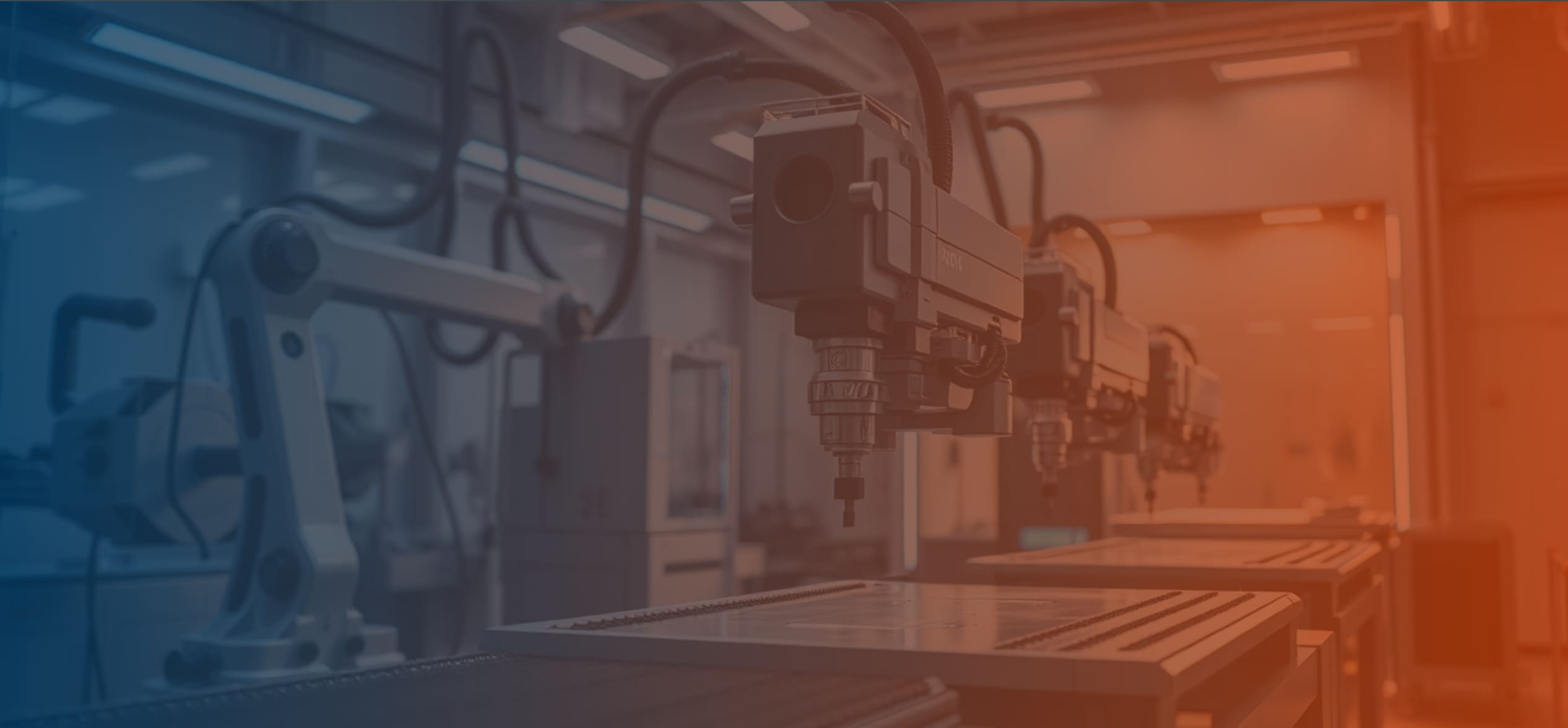
Transform Your Surfaces, Elevate Your Products
From aerospace precision to medical-grade sterilization, our comprehensive surface treatment solutions enhance durability, aesthetics, and functionality. Whatever your industry demands, we deliver excellence in every finish.
Finishings
Abrasive Blasting (Sandblasting, Bead Blasting)
Propelling abrasive media at high velocity to clean, shape, or roughen surfaces
Advantages:
- Effectively removes contaminants and old coatings
- Creates uniform surface texture
- Improves adhesion for subsequent coatings
Disadvantages:
- Can cause material distortion if not controlled
- Requires proper containment for dust/debris
- May alter material dimensions
Common Applications: Automotive parts preparation, rust removal, architectural restoration, surface preparation before painting
Polishing/Buffing
Smoothing surfaces using abrasive materials to create a reflective finish
Advantages:
- Achieves mirror-like finishes (up to Ra 0.05μm)
- Enhances aesthetic appeal
- Reduces surface friction
Disadvantages:
- Labor intensive and time-consuming
- May remove too much material if not controlled
- Requires multiple stages for best results
Common Applications: Jewelry, luxury watches, medical instruments, high-end consumer products, optical components
Brushing
Creating linear patterns on metal surfaces using wire or nylon brushes
Advantages:
- Creates decorative satin finish
- Hides minor surface imperfections
- Less expensive than polishing
Disadvantages:
- Shows fingerprints and smudges easily
- Difficult to maintain consistent pattern
- Less corrosion resistant than polished surfaces
Common Applications: Architectural metals, kitchen appliances, elevator doors, decorative panels, consumer electronics
Treatments
Heat Treating (Annealing, Hardening, Tempering)
Controlled heating and cooling processes to alter physical and mechanical properties
Advantages:
- Significantly improves material hardness and strength
- Relieves internal stresses
- Enhances machinability and ductility
Disadvantages:
- Can cause dimensional changes
- Energy intensive process
- May require secondary operations
Common Applications: Cutting tools, gears, springs, bearings, structural components, aerospace parts
Passivation
Chemical process that creates a protective oxide layer on stainless steel and other metals
Advantages:
- Enhances corrosion resistance
- Removes free iron and contaminants
- Non-toxic and environmentally friendly
Disadvantages:
- Limited to specific metals (primarily stainless steel)
- Does not provide decorative finish
- May require precise chemical control
Common Applications: Medical devices, food processing equipment, pharmaceutical equipment, marine components
Plating (E-coating)
Zinc Plating
Electroplating process that deposits a layer of zinc onto metal surfaces
Advantages:
- Excellent corrosion resistance (sacrificial protection)
- Relatively low cost
- Can be further enhanced with chromate conversion
Disadvantages:
- Less durable than some other platings
- Limited temperature resistance
- Not suitable for highly acidic environments
Common Applications: Automotive fasteners, hardware, electrical components, construction materials
Nickel Plating
Electroplating process that deposits nickel onto metal surfaces
Advantages:
- High hardness and wear resistance
- Good corrosion protection
- Can be polished to high luster
Disadvantages:
- Can cause allergic reactions in some people
- Environmental concerns with waste disposal
- More expensive than zinc plating
Common Applications: Automotive trim, electronics, hydraulic components, molds and dies
Chrome Plating
Electroplating process that deposits chromium onto metal surfaces
Advantages:
- Exceptional hardness (up to 1000 HV)
- High corrosion and wear resistance
- Bright, decorative appearance
Disadvantages:
- Environmental concerns (hexavalent chromium)
- Complex process requiring skilled operators
- Higher cost than many other platings
Common Applications: Automotive trim, bathroom fixtures, industrial tooling, hydraulic rods
Copper Plating
Electroplating process that deposits copper onto metal surfaces
Advantages:
- Excellent electrical conductivity
- Good thermal conductivity
- Often used as undercoat for other platings
Disadvantages:
- Tarnishes easily without protective coating
- Limited corrosion resistance on its own
- Requires careful surface preparation
Common Applications: Printed circuit boards, electrical components, decorative items, undercoat for nickel-chrome plating
Gold Plating
Electroplating process that deposits a thin layer of gold onto metal surfaces
Advantages:
- Superior corrosion resistance
- Excellent electrical conductivity
- Prestigious appearance
Disadvantages:
- Very high cost
- Soft and susceptible to wear
- Requires precise thickness control
Common Applications: Electronics connectors, jewelry, aerospace components, high-reliability electrical contacts
Silver Plating
Electroplating process that deposits silver onto metal surfaces
Advantages:
- Highest electrical conductivity of all metals
- Good thermal conductivity
- Attractive appearance
Disadvantages:
- Tarnishes easily
- Relatively soft and susceptible to wear
- Higher cost than base metal platings
Common Applications: Electronic components, RF connectors, silverware, jewelry, mirrors
Other Coatings
Powder Coating
Dry finishing process where electrostatically charged powder is applied and then cured with heat
Advantages:
- Extremely durable and resistant to chipping
- Environmentally friendly (no VOCs)
- Wide range of colors and textures
Disadvantages:
- Requires heat curing (not suitable for heat-sensitive materials)
- Difficult to achieve thin coatings
- Higher initial equipment cost
Common Applications: Appliances, automotive parts, outdoor furniture, bicycles, architectural elements
Anodizing
Electrochemical process that converts aluminum surface into a durable, corrosion-resistant oxide finish
Advantages:
- Excellent corrosion and wear resistance
- Can be dyed in wide range of colors
- Electrically insulating
Disadvantages:
- Limited primarily to aluminum
- Can be damaged by strong acids or bases
- Color may fade with UV exposure
Common Applications: Consumer electronics, architectural components, sporting goods, cookware, aerospace parts
Painting
Application of liquid paint to surfaces for protection and decoration
Advantages:
- Virtually unlimited color options
- Can be applied to almost any material
- Relatively low cost
Disadvantages:
- Less durable than other coatings
- May contain VOCs (environmental concerns)
- Requires careful surface preparation
Common Applications: Automotive bodies, industrial equipment, consumer products, architectural elements


